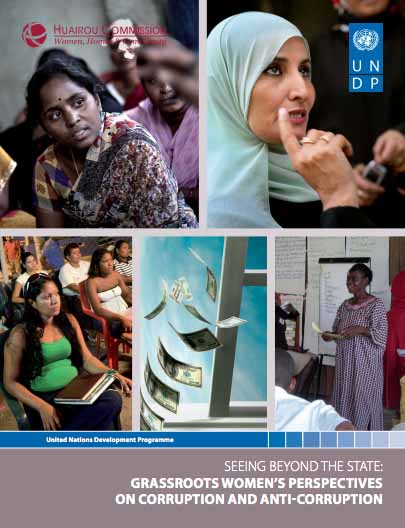Anti-corruption & Women’s Empowerment
Introduction
Corruption is not gender neutral; it has different impacts on both women and men. Considering that women often face social, cultural, political and institutional discrimination, they encounter even more repression and social exclusion in a corruption-ridden society. Therefore, anti-corruption measures need to be gender responsive to facilitate gender equality and women’s empowerment. Recent studies have showed that empowered women, who have an opportunity for participation in decision-making, are powerful actors that can contribute to the fight against corruption.

